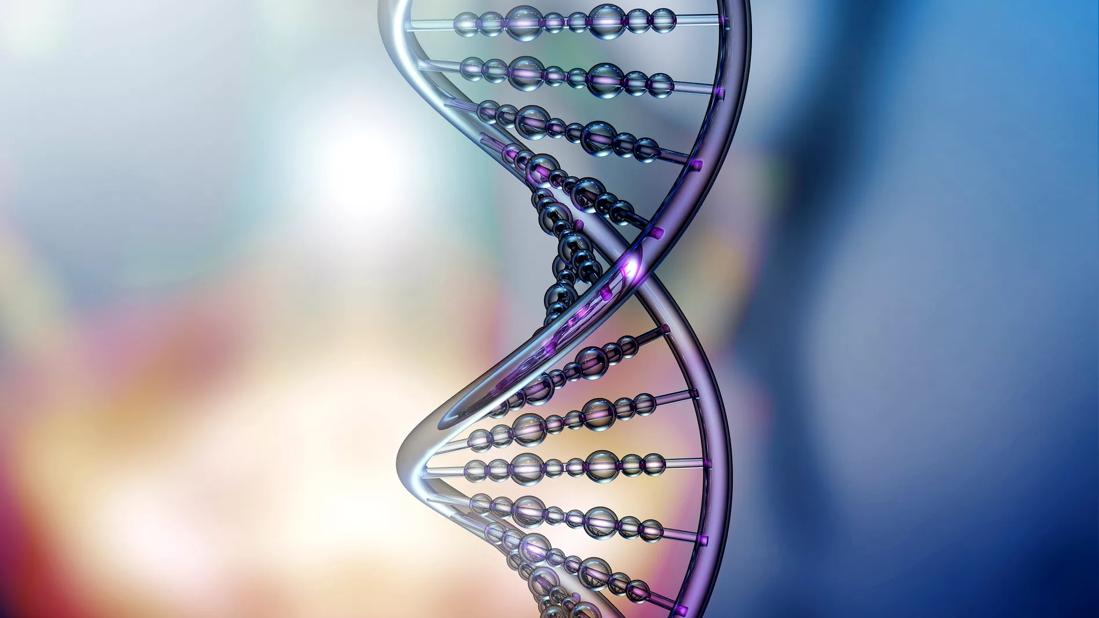Research enables precision medicine beyond patients with changed mutational status

Image content: This image is available to view online.
View image online (https://assets.clevelandclinic.org/transform/78ada9e0-181e-47f1-8263-cc1f060c0f0b/Biologics-jpg)
DNA
Researchers at Cleveland Clinic have taken an important step in predicting which therapy will work for each patient with cancer. Using a gene signature developed from cell lines and human tissue, the research team demonstrated the ability to predict a patient’s response to the chemotherapy agent cisplatin, without relying on changes in the patient’s mutational status. Having these insights could help many patients avoid toxicities associated with this chemotherapy and move to an agent they’re more likely to respond to.
Advertisement
Cleveland Clinic is a non-profit academic medical center. Advertising on our site helps support our mission. We do not endorse non-Cleveland Clinic products or services. Policy
The team’s vision is to develop a host of gene expression signatures so that clinicians could determine which medication each patient with cancer will benefit from the most. Their research was recently published in NPJ Precision Oncology.
“Currently if you look at a population-based level, we know that a certain percentage of patients will respond to a given chemotherapy, but we want to know ‘which one will work for the patient in front of me’?” says Jacob G. Scott, MD, DPhil, study co-corresponding author and head of Cleveland Clinic’s Theory Division Laboratory in the Department of Translational Hematology and Oncology Research. “That’s the holy grail of personalized medicine. This work is an important move toward that answer.”
In recent years, effective new cancer therapies have emerged that extend the lives of patients with targetable gene mutations. However, only an estimated 7.04% of patients with cancer have a genetic mutation that is targetable. For many other patients, they are left with conventional chemotherapy, yet clinicians have had little ability to determine ahead of time which chemotherapy will work for each patient, instead having to rely on trials at the population level, or gene tests that predict chance to recurrence, not response to a specific agent.
Researchers have worked for years to use gene signatures for predictive medicine, but it has been difficult to interpret how specific gene signatures would act in the human body. In this study, the team aims to overcome this obstacle by incorporating tumor samples into its extraction methods. Using big data, they were able to determine how a particular gene expressed itself within a tumor.
Advertisement
The Cisplatin Response Signature, CisSig, is shown to predict response to cisplatin within cell lines. Using a novel signature extraction method, the researchers produced CisSig to predict how well patients with epithelial-origin tumors would respond to the therapy. With this data, they derived a score to determine how well an individual would respond to cisplatin.
While cisplatin is used as a first-line agent for many cancers, it is also one of the oldest chemotherapy agents. “We started by looking into response to cisplatin, because it can cause severe, sometimes lifelong side effects such as kidney damage, neuropathy and tinnitus,” says lead study author Jessica A. Scarborough, PhD. “If we can help a patient avoid a medication they’re not going to respond to, and move to a second-line agent they’re more likely to benefit from, that has a big impact.”
Next, the researchers conducted preliminary validation of their approach for patients with muscle-invasive bladder cancer. Using two cohorts of pre-treatment tumor samples, they demonstrated that CisSig was predictive of therapeutic response to cisplatin. “This was a small cohort, so while we can’t draw grand conclusions from the data, the results we did find were quite striking,” says Scarborough. “It’s exciting to see a project that started solely as computationally-based and apply that to a clinical data set and see significant results in predicting who will be sensitive to a particular agent.”
This approach is feasible to apply to the clinical setting, since RNA sequencing can be performed at a reasonable cost. “Even if a patient doesn’t have a gene mutation that is targetable, we can still apply precision medicine to optimize their treatment,” says Scarborough.
Advertisement
To further validate their approach, the research team plans to build on this work with larger-scale retrospective studies. Using tissues from the Cleveland Clinic biobank, they are sequencing the gene signatures of patients with bladder as well as head and neck cancers treated with cisplatin. In addition, the team has an NIH-sponsored study to test this score prospectively in both bladder and head and neck cancers.
Advertisement
Advertisement
First-in-human phase 1 trial induced loss of function in gene that codes for ANGPTL3
Authors discuss ethical challenges associated with sponsored genetic testing
Universal testing could reduce expected costs compared to EGFR single gene testing
A well-prepared team meets the distinctive needs of patients at hereditary high risk
Program plays key role in diagnosis and management of genetic kidney diseases
Introducing Krishna Aragam, MD, head of new integrated clinical and research programs in cardiovascular genomics
Genetic variants exist irrespective of family history or other contributing factors
CD36 loss-of-function variant accounts for large portion of risk in this population